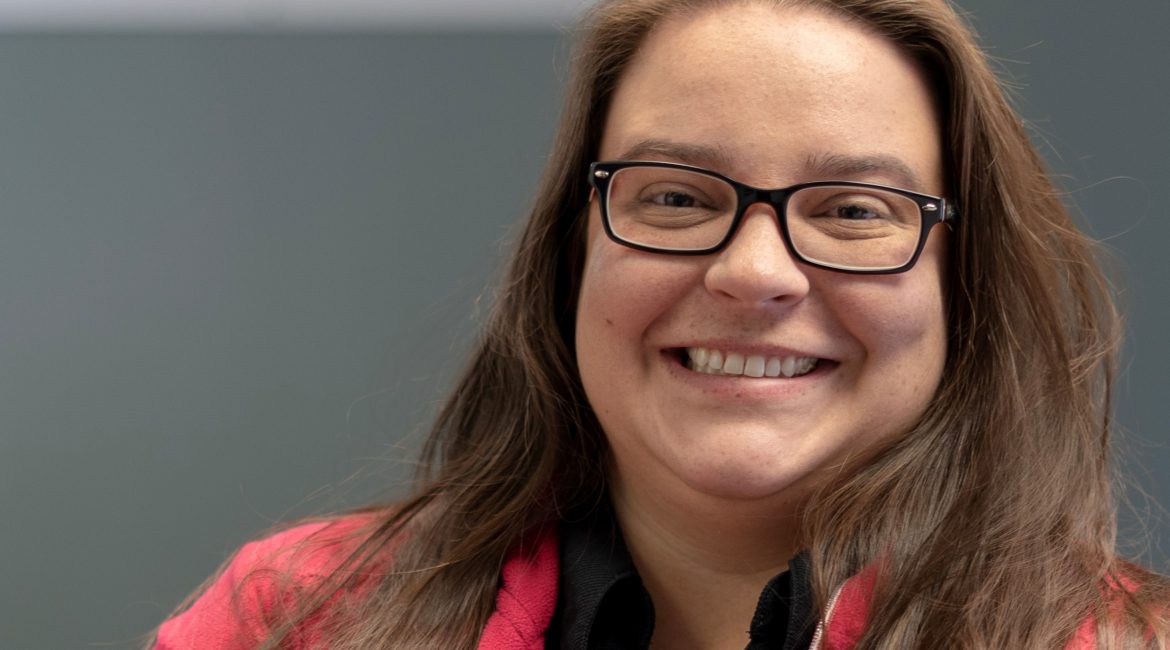Michelle Nanista, Managing Principal Engineer, talks about her most interesting projects at TRS, and how she wants to work for the company until she retires.
Position: Managing Principal Engineer
Location: Pacific, Missouri
TRS Employee-Owner Year Started: 2008
Specialties: Pricing development, cost support, technology selection and approach
Education: Bachelor’s in Chemical Engineering from the University of Missouri; Professional Engineer 2017
TRS Group: What single thing have you been most proud of during your time at TRS?
Michelle: I’ve had a lot of fun and interesting projects. One that always sticks in my mind is a project I did in the Northeast some 10 years ago. At the time it was the deepest electrical resistance heating (ERH) remediation that TRS had ever done. We were treating down to 130 feet, and a good portion of that was bedrock.
Successfully remediating a site that deep is one of those things that I’m very proud of.
TRS: What challenges did you run into while you were designing and working on that site?
Michelle: We were treating adjacent to a building, so finding a way to install the system and minimize our impact to the building was important. The building was outside of our footprint, but the owners needed to maintain an emergency egress pathway.
TRS: What was the deepest we had gone up to that point?
Michelle: We had treated down to 110 feet, and that was on a confidential site in California about seven or eight years prior.
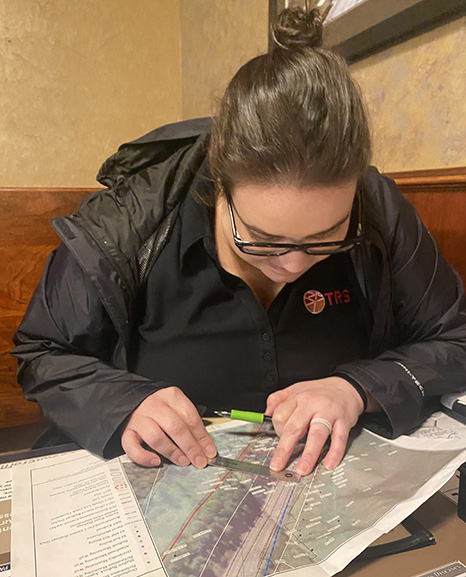
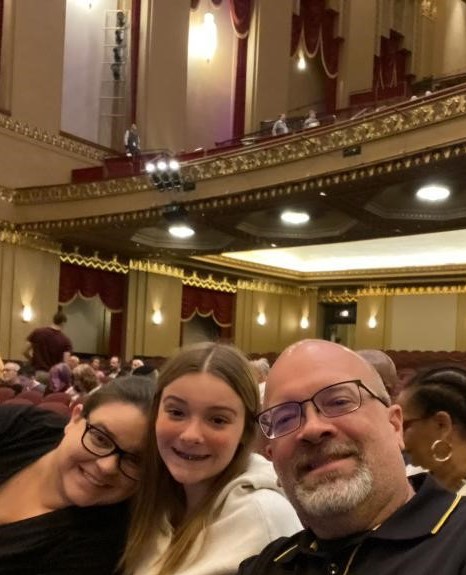
TRS: What is the most satisfying aspect of your job?
Michelle: I really like being able to help clients find the optimal option for their sites. Once they have decided on a thermal remedy, we sit down and talk about finding the best solution. We try to find a balance between achieving really low remediation objectives and price. We look at the treatment volume and concentrations we can achieve within the budgetary constraints.
TRS: When did you realize you had a gift for working with clients?
Michelle: When I started with TRS, it was my first job in the environmental industry. I was not previously in consulting or anything like that. But when they hired me, the intention was for me to do a lot of costing and pricing support. They needed someone in their home office that could do those cost estimates and develop those scenarios. Someone that could talk through options with clients, that could talk through pricing with clients, and help them understand how the technology works. It was the intention when I was hired, but it wasn’t necessarily because of previous experience. I had some amazing mentors when I was hired at TRS.
TRS: If you didn’t have the previous experience of working with clients, how did you convince TRS that you were the person for the job?
Michelle: The honest answer is Chad Crownover, Managing Principal Engineer, recommended me. At that time when TRS was a small company, those personal recommendations meant a lot.
TRS: How did you know Chad?
Michelle: Chad, Emily (Crownover, Managing Principal Engineer), and I all went to college together. We met at Mizzou. Chad and I were both in chemical engineering. Emily had a different major, but we all had a lot of the same classes. We studied together. We hung out together. We developed that friendship in college.
I don’t know if it was my work that led Chad to recommending me to TRS. We didn’t really interact professionally prior to TRS. I think he just knew my personality and my work ethic from college. You study for a lot of tests and spend a lot of time together. You can learn a lot about a person during that time. I think that’s ultimately why he recommended me.
TRS: How did you, Chad and Emily meet?
Michelle: I don’t remember the specific class. At some point during sophomore year or even junior year is when I met them and was introduced to them. It might have been Intro to Chemical Engineering or something like that where I met Chad. And through Chad, I met Emily.
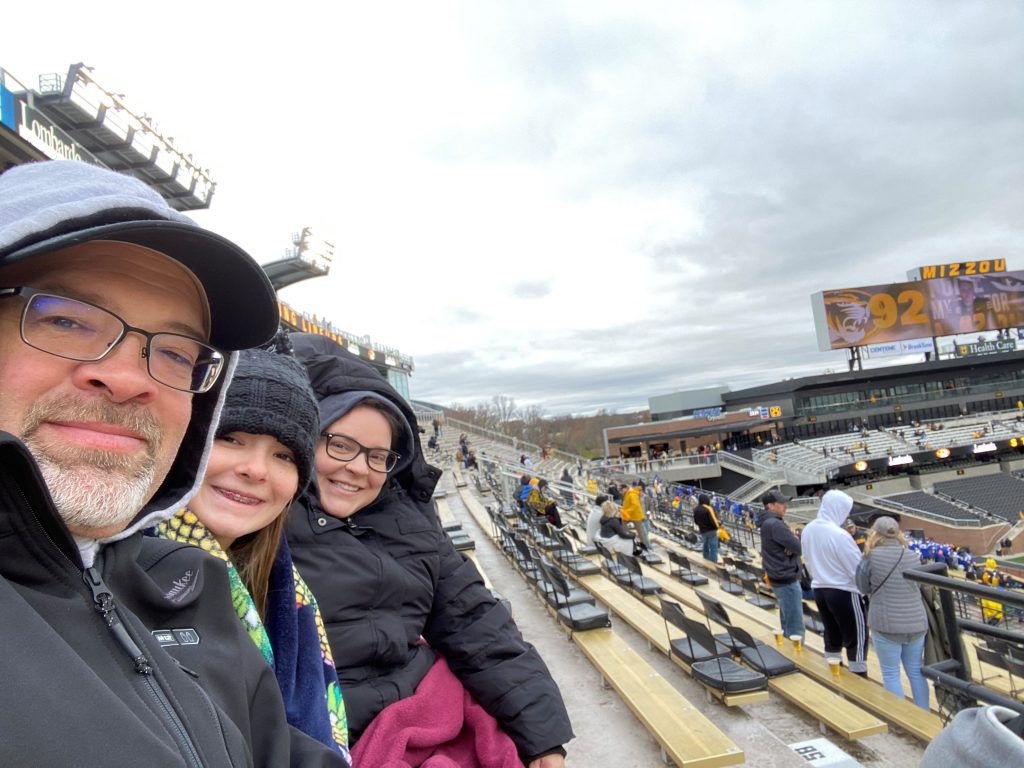
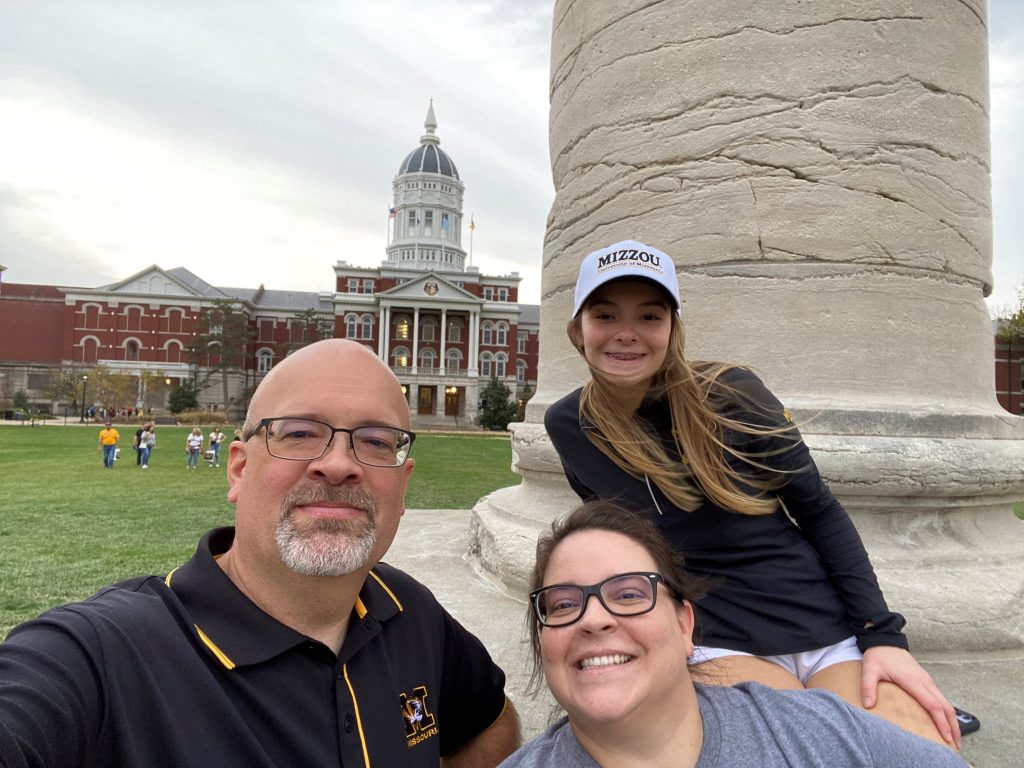
Michelle and her family show their Tiger pride at a Mizzou football game and on the Quad.
TRS: What attracted you to the environmental remediation field?
Michelle: There is a lot of overlap between chemical engineering and environmental engineering. You’re dealing with different chemicals and how they are going to behave at different temperatures. But I liked knowing that you can go in and clean up a site.
Like I said, I came straight into the environmental field with TRS. I loved the idea that we could come in and quickly clean up a site. We’re not going to be there for five, 15, 20 years. We’re going to come in and aggressively treat the site. Most of our projects are done in 18 months, which in the environmental industry is nearly unheard of.
TRS: How did you hear about thermal remediation as a technology?
Michelle: Chad was my introduction to the environmental industry and thermal remediation. He started at TRS and fell in love with the company and what TRS was doing. He told me about the culture of the company and the collaborative atmosphere. He called me up one day and said TRS was looking to hire and asked if I was interested. He kind of gave me the TRS 101 intro. That’s really all it took.
When I was going through the hiring process, TRS was trying to fill both a senior and junior engineering roles.
At the time, I was staying home with my baby daughter, but before that I was working at Cooper Bussman, now Eaton, doing technical support. It was totally different work, but the funny thing is there is some overlap. At TRS, we have to specify fuses and circuit breakers for different applications. I was introduced to arc flash at Cooper Bussmann.
My background at Bussmann helped me develop my electrical understanding at TRS faster than I otherwise would have.
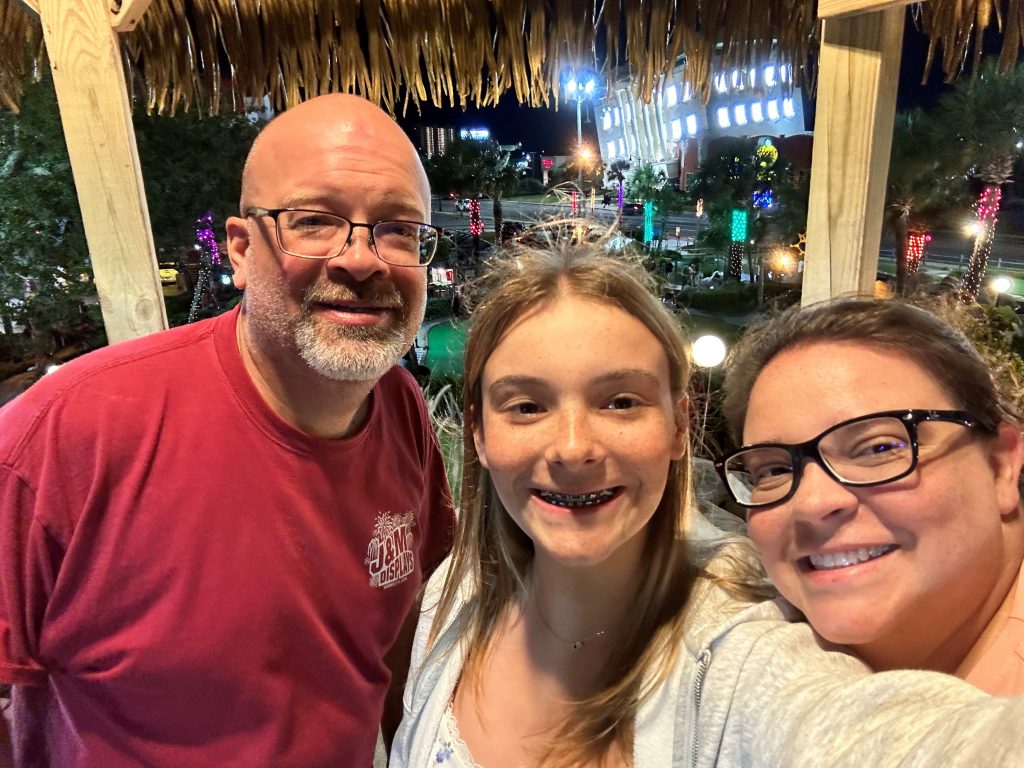
TRS: When did you decide you wanted to be an engineer?
Michelle: I’ve always liked math and I’ve always like science – chemistry, in particular.
My dad was an engineer, and my sister had studied chemical engineering. We kind of had that engineering gene or blood in our family line. There was already a passion for engineering in our family. I combined my love for math and my love for chemistry and decided to go the chemical engineering route.
My dad essentially spent his entire career at GE. That’s my goal at TRS. I want to work at TRS until I retire.

